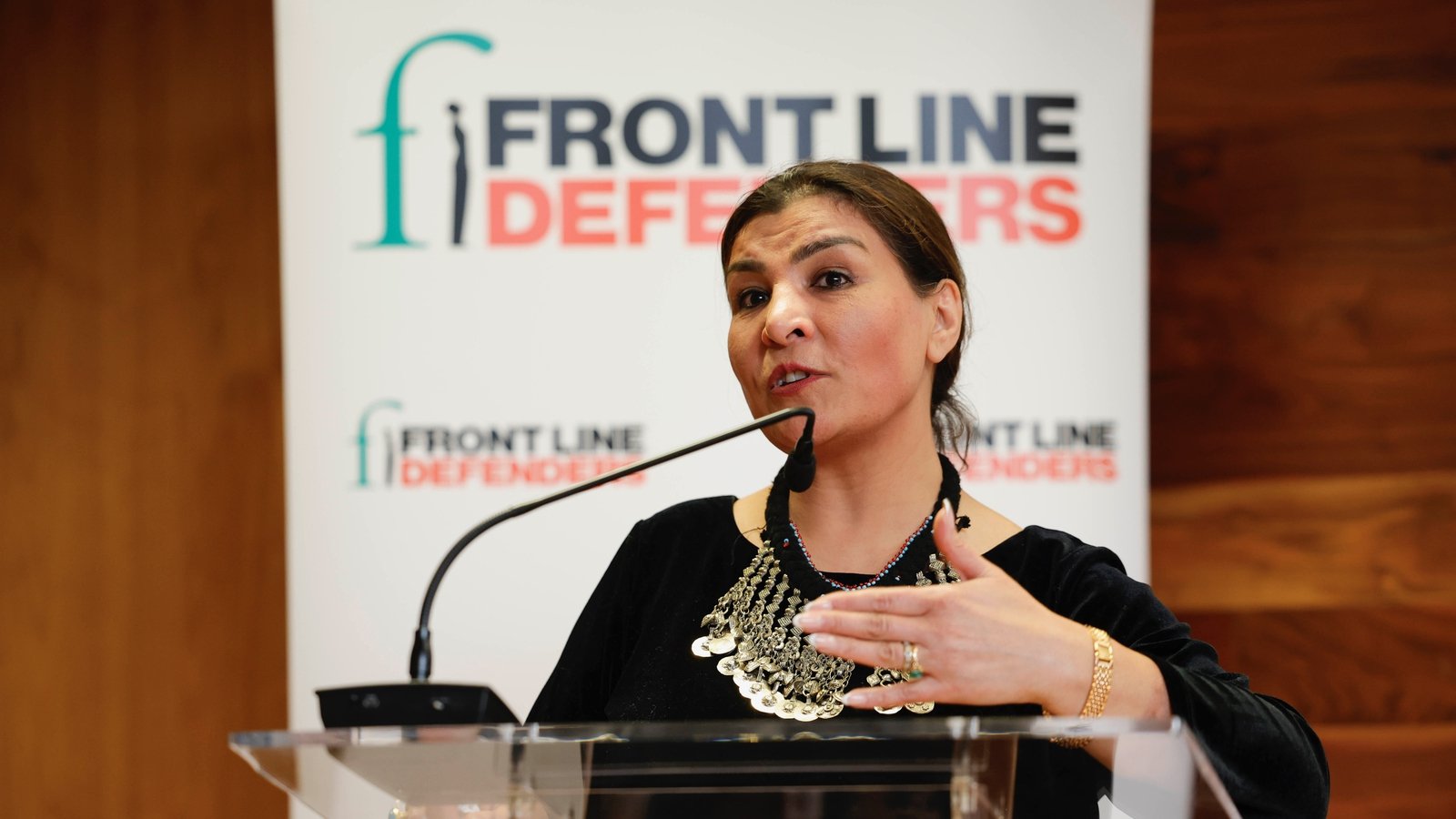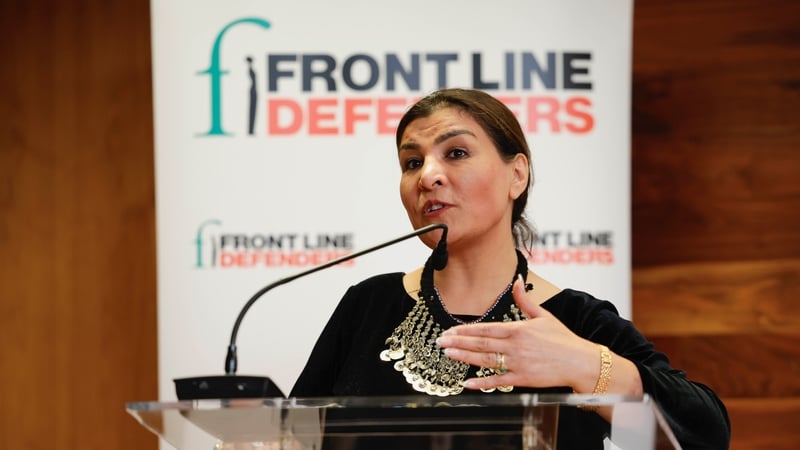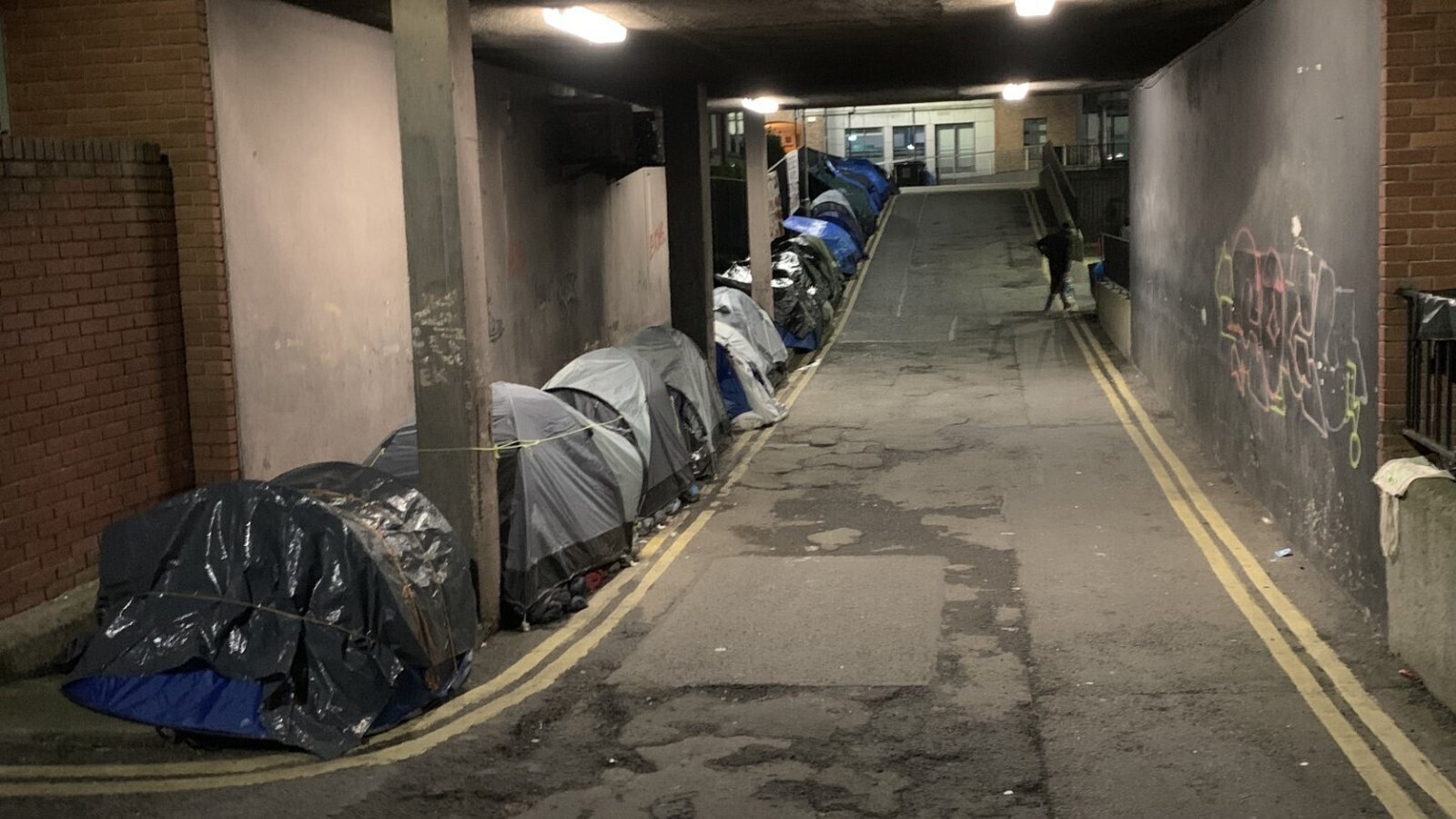Afghan women still living under ‘gender apartheid regime’


Afghanistan’s status as the only country in the world where women and girls are prevented from being educated will only change if countries with the leverage apply the required pressure, according to the leading Afghan human rights activist Horia Mosadiq.
Speaking in Dublin last night, she said, “There has to be consistency. There has to be conditionality. The Taliban have to feel the pressure – but they have not felt the pressure yet.”
The bleak consequence of that abject failure, she contended, meant that Afghan women and girls continue to live under the control of a “gender apartheid regime.”
Ms Mosadiq said countries in the West claim that they are defenders of human rights but, at the same time, are engaging with the Taliban without placing any conditionality on the relationship.
She told the Front Line Defenders Annual Lecture in Trinity College that Western countries needed to be very direct with the Taliban: “If you don’t let girls go to school, we are going to isolate you. We won’t have any engagement with you at all. We won’t even sit in the same room.”
She added: “Unfortunately, that has never happened.”
The campaigner argued that the United States did not act because it was concerned with its own national security and the need to exchange intelligence with the Taliban, while the European Union’s primary focus was stopping the flow of refugees from Afghanistan.
The talk was entitled ‘How Afghan Women are Defying the Taliban’, and Ms Mosadiq gave examples about how Afghan women were trying to rebel against more than 120 edicts designed by the Taliban to dramatically curtail their lives.
She said there were “underground schools” across Afghanistan where women and girls are being educated online, adding the slogan for the movement is ‘Education, Work and Freedom’ and activists daub this on the walls in Afghan cities.
However, the capacity to protest had been severely limited by the Taliban’s iron grip, and human rights campaigners who take to the streets are often imprisoned for months without access to any legal process.
Ms Mosadiq said she felt residual anger over the peace talks, which brought the Taliban in from the cold, with negotiators from the West informing her that the Taliban “have changed” or they were only talking to “like-minded Taliban.”
The truth, she declared, was that when the Taliban took over in August 2021, all of the rights which had been accorded to women and girls over the previous 20 years “disappeared with the blink of an eye.”
She branded the Taliban as “liars” who would promise reform in the future by “writing on the ice and then putting it under the sun.”
Ms Mosadiq said the fact of the matter was that there were “no rights for women”, and the negotiations in Doha should have included red lines and pre-conditions to protect them.
Women and girls are now banned from education beyond the age of six and face restrictions on their clothing, employment, and their basic freedom of movement and expression.
Women who have lost their jobs and become destitute can no longer even beg on the streets.
Under the Taliban, she said there has also been a rise in sexual and gender-based violence against women and girls, as well as honour killings, and impunity for the male offenders is standard.
The only thing the Taliban was doing, apart from oppressing, was establishing religious schools for women and girls which the campaigner feared would become a breeding ground for radicalisation into the future.
Despite the bleak outlook, Ms Mosadiq said that the answer to Afghanistan’s problems had to “come from within”, and this would only happen if Western countries supported people inside the country who are “working to brought about that change.”
Front Line Defenders helps to afford protection to human rights defenders across the world and its headquarters is based in Blackrock in south Dublin.
The Front Line Defenders Annual Lecture is held in association with UCD School of Philosophy, UCD School of Politics and International Relations (SPIRe), UCD Centre for Human Rights, Trinity College Dublin’s Law School, Irish Centre for Human Rights at the University of Galway, and The Human Rights Centre at Queen’s University, Belfast.





